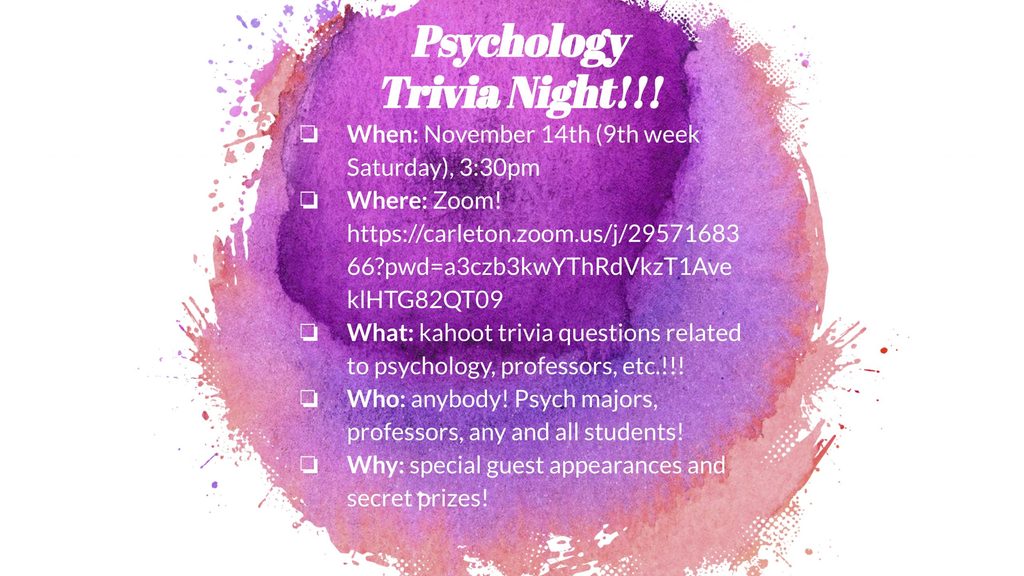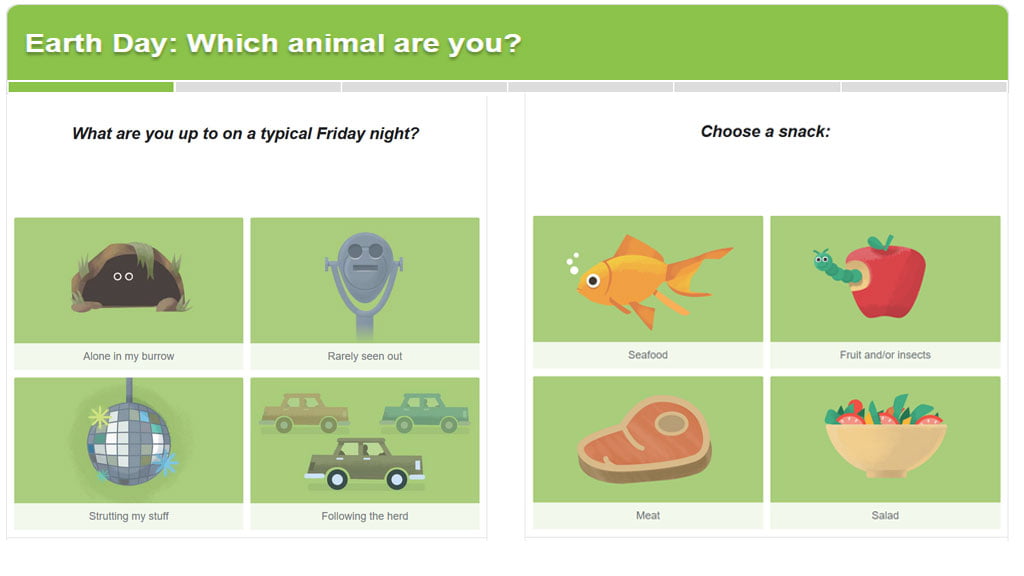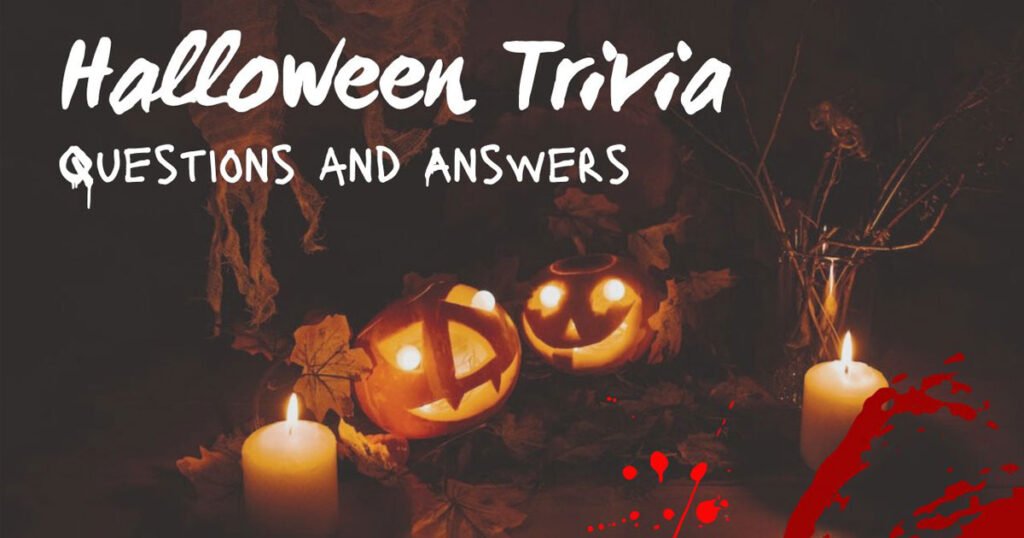Are you ready to dive deep into the fascinating world of the mind? Discover our engaging collection of Psychology Trivia Questions and answers that will challenge your understanding and spark your curiosity. Whether you’re a psychology student, a trivia enthusiast, or just someone looking to learn more about human behavior, our trivia questions cover a range of topics, from famous psychologists to groundbreaking theories.
Explore the intriguing aspects of psychology while testing your knowledge with our carefully curated questions. Get ready for an enlightening experience that combines fun and education!
Fun Facts About Psychology
Psychology is the fascinating study of the mind and behavior. It offers endless trivia that can surprise and engage everyone. Fun facts about psychology reveal the mysteries behind human thoughts and actions. These tidbits can also spark curiosity and deepen your understanding of the human psyche.
Origins Of Psychology
Psychology has roots that trace back to ancient civilizations. The word “psychology” comes from the Greek words “psyche,” meaning mind or soul, and “logos,” meaning study.
Early philosophers like Socrates, Plato, and Aristotle pondered questions about the mind. They explored topics like memory, perception, and learning. These ancient thinkers laid the groundwork for modern psychology.
In the 19th century, psychology became a distinct scientific discipline. Wilhelm Wundt, a German psychologist, is often called the “father of psychology.” He established the first psychology lab in 1879 in Leipzig, Germany.
- Wundt’s lab focused on experiments and observations.
- Introspection was a key method, involving self-examination of thoughts and feelings.
In America, William James published “The Principles of Psychology” in 1890. This book is still influential today. James is known for his theory of functionalism, which focuses on how mental processes help individuals adapt to their environment.
Here’s a brief timeline of key events:
| Year | Event |
|---|---|
| Ancient Greece | Philosophers explore the mind |
| 1879 | Wundt establishes the first psychology lab |
| 1890 | James publishes “The Principles of Psychology” |
Famous Psychologists
Many psychologists have contributed to the field with groundbreaking theories and research. Let’s look at some famous names and their contributions.
Sigmund Freud is perhaps the most famous psychologist. He developed the theory of psychoanalysis, focusing on the unconscious mind. Freud introduced concepts like the id, ego, and superego.
Another giant in psychology is Carl Jung, a contemporary of Freud. Jung founded analytical psychology. He introduced ideas like archetypes and the collective unconscious.
B.F. Skinner is known for his work in behaviorism. Skinner’s experiments with rats and pigeons led to the development of operant conditioning. This theory explains how behaviors are influenced by rewards and punishments.
- Albert Bandura introduced the concept of social learning theory. He showed how people learn by observing others.
- Jean Piaget is famous for his theory of cognitive development. He studied how children think and learn in stages.
Here’s a quick comparison of their contributions:
| Psychologist | Key Contributions |
|---|---|
| Sigmund Freud | Psychoanalysis, unconscious mind |
| Carl Jung | Analytical psychology, archetypes |
| B.F. Skinner | Behaviorism, operant conditioning |
| Albert Bandura | Social learning theory |
| Jean Piaget | Cognitive development |
101 Best Psychology Trivia Questions and Answers
Here’s a comprehensive list of 101 psychology trivia questions and answers, categorized into 6 main areas:
General Psychology
Q: Who is known as the father of modern psychology?
A: Wilhelm Wundt
Q: What term did Sigmund Freud use to describe the part of the mind that contains thoughts and feelings we are unaware of?
A: The unconscious
Q: What is the primary focus of cognitive psychology?
A: The study of mental processes such as perception, memory, and problem-solving.
Q: Which psychologist developed the hierarchy of needs?
A: Abraham Maslow
Q: What is the name of the psychological theory that suggests people learn behaviors through observation and imitation?
A: Social Learning Theory
Q: What is the scientific study of behavior and mental processes?
A: Psychology
Q: Who is associated with classical conditioning?
A: Ivan Pavlov
Q: What is the main focus of behaviorism in psychology?
A: The study of observable behavior and the role of the environment in shaping it.
Q: What does the term “cognitive dissonance” refer to?
A: The mental discomfort that occurs when a person holds two contradictory beliefs or when their actions contradict their beliefs.
More General Psychology
Q: Which experiment is known for demonstrating the power of conformity in groups?
A: Solomon Asch’s conformity experiments
Q: Who created the first intelligence test?
A: Alfred Binet
Q: What is the primary function of the prefrontal cortex?
A: Decision-making, problem-solving, and controlling social behavior.
Q: What term refers to a person’s overall sense of self-worth?
A: Self-esteem
Q: What is the “big five” personality traits model?
A: Openness, Conscientiousness, Extraversion, Agreeableness, Neuroticism
Q: Which psychological disorder is characterized by periods of extreme mood swings?
A: Bipolar disorder
Q: What is the term for the gradual process by which individuals learn the norms and values of their culture?
A: Socialization
Q: Who is the founder of humanistic psychology?
A: Carl Rogers
Q: What is the phenomenon in which people are more likely to comply with a large request after agreeing to a smaller one?
A: The foot-in-the-door technique
Q: What does the term “placebo effect” refer to?
A: Improvement of symptoms due to the belief that a treatment is effective, even if it’s inactive.
Q: What psychological condition is characterized by excessive fear of social situations?
A: Social anxiety disorder
Developmental Psychology
Q: What is the term for a child’s ability to understand that objects continue to exist even when they cannot be seen?
A: Object permanence
Q: Who developed the stages of cognitive development in children?
A: Jean Piaget
Q: What is Erik Erikson’s stage of psychosocial development for adolescence?
A: Identity vs. Role Confusion
Q: At which stage of development do infants develop trust according to Erikson?
A: Trust vs. Mistrust
Q: What does Vygotsky’s concept of the Zone of Proximal Development describe?
A: The difference between what a learner can do independently and what they can do with guidance.
Q: What term refers to the process of acquiring and adjusting behavior patterns through interaction with others?
A: Socialization
Q: What is the critical period in language development?
A: A window of time during early childhood when language acquisition occurs most easily.
Q: What is the theory that suggests children actively construct their own understanding of the world?
A: Constructivism
Moe Developmental Psychology
Q: What attachment style is characterized by distress when separated from the caregiver and difficulty calming down upon reunion?
A: Anxious/ambivalent attachment
Q: Who is known for his work on moral development in children?
A: Lawrence Kohlberg
Q: What is the term for the cognitive ability to understand that others have thoughts and perspectives different from one’s own?
A: Theory of mind
Q: Which stage of Erikson’s psychosocial development focuses on the challenge of intimacy versus isolation?
A: Young adulthood
Q: What is the term for the process by which individuals change their beliefs, behaviors, or attitudes to match those of a group?
A: Conformity
Q: What is the name of the test used to measure the development of a child’s intelligence?
A: The Stanford-Binet Intelligence Scale
Q: What is the term for a baby’s first social smile?
A: Social smiling (usually occurs around 6 weeks)
Social Psychology
Q: What is the tendency for people to exert less effort in a group task than when working alone?
A: Social loafing
Q: What is the psychological phenomenon where people tend to conform to group decisions, even when they know they are wrong?
A: Groupthink
Q: What is the term for helping behavior that is intended to benefit others without expecting anything in return?
A: Altruism
Q: What is the phenomenon in which people are less likely to help when others are present?
A: Bystander effect
Q: Who conducted the famous obedience experiment in which participants administered shocks to others?
A: Stanley Milgram
Q: What is the term for the process by which individuals make attributions about the causes of their own and others’ behavior?
A: Attribution theory
Q: What is the principle that suggests people are more likely to help others if they feel a personal connection to them?
A: Empathy-altruism hypothesis
Q: Which psychologist is known for his studies on social roles, particularly the Stanford prison experiment?
A: Philip Zimbardo
More Social Psychology
Q: What is the name of the theory that suggests we evaluate ourselves by comparing ourselves to others?
A: Social comparison theory
Q: What is the term for the tendency to view one’s own group as superior to others?
A: In-group bias
Q: What is cognitive dissonance theory primarily concerned with?
A: The discomfort caused by holding conflicting cognitions or attitudes.
Q: What is the term for the process by which individuals change their attitudes or behaviors due to influence from others?
A: Persuasion
Q: Which phenomenon explains why people are more likely to comply with a request after a larger, unreasonable request is made first?
A: Door-in-the-face technique
Q: What is the tendency to judge a person based on a single characteristic, like attractiveness or race?
A: The halo effect
Q: What is the term for individuals behaving differently because they are in the presence of others?
A: Social facilitation
Clinical Psychology
Q: What is the most common type of mental illness in the United States?
A: Anxiety disorders
Q: What is the mental health condition characterized by excessive worry and fear?
A: Generalized anxiety disorder
Q: Which therapeutic approach focuses on changing negative thought patterns and beliefs?
A: Cognitive-behavioral therapy (CBT)
Q: What is the term for a psychological disorder marked by extreme sadness and loss of interest in activities?
A: Major depressive disorder
Q: What mental disorder is characterized by repetitive, uncontrollable behaviors or mental acts?
A: Obsessive-compulsive disorder (OCD)
Q: What does PTSD stand for?
A: Post-traumatic stress disorder
Q: What is the term for a persistent, irrational fear of a specific object or situation?
A: Phobia
Q: What is the mental disorder where individuals experience delusions and hallucinations?
A: Schizophrenia
Q: Who is considered the father of psychoanalysis?
A: Sigmund Freud
Q: What is the term for an intense fear of being judged or scrutinized by others?
A: Social anxiety disorder
Q: What is the term for the therapy that involves exposing patients to feared situations in a controlled way to reduce anxiety?
A: Exposure therapy
Q: What type of disorder involves difficulty regulating emotions and behavior?
A: Borderline personality disorder
Q: What is the most common treatment for major depressive disorder?
A: Antidepressant medications and psychotherapy
Q: What is the term for the process of relieving tension through physical expression, such as movement or shouting?
A: Catharsis
Q: Which therapeutic approach is centered around understanding the unconscious mind?
A: Psychoanalysis
Neuropsychology
Q: What part of the brain is responsible for controlling voluntary movements?
A: The motor cortex
Q: Which neurotransmitter is most closely associated with feelings of happiness and well-being?
A: Serotonin
Q: What is the term for the brain’s ability to reorganize itself by forming new neural connections?
A: Neuroplasticity
Q: What is the role of the amygdala in the brain?
A: It is involved in emotion processing, particularly fear and aggression.
Q: What is the name of the structure that connects the two hemispheres of the brain?
A: The corpus callosum
Q: Which lobe of the brain is primarily responsible for processing sensory information?
A: Parietal lobe
Q: What is the primary function of the hippocampus?
A: Memory formation and spatial navigation
Q: Which neurotransmitter is most associated with the regulation of mood and attention?
A: Dopamine
Q: What part of the brain controls automatic functions such as heartbeat and breathing?
A: The brainstem
Q: What is the term for the loss of ability to form new memories?
A: Anterograde amnesia
Q: What is the “fight or flight” response primarily regulated by?
A: The sympathetic nervous system
Q: What is the primary function of the occipital lobe?
A: Visual processing
Q: What is the term for the condition in which damage to the brain causes language difficulties?
A: Aphasia
Q: What is the role of the frontal lobe?
A: It is responsible for executive functions such as reasoning, planning, and motor control.
Q: What is the term for the process of sensory input being converted into a neural signal?
A: Transduction
Abnormal Psychology
Q: What is the name of the diagnostic manual used by mental health professionals in the United States?
A: The Diagnostic and Statistical Manual of Mental Disorders (DSM)
Q: What disorder is characterized by excessive, uncontrollable episodes of sadness and lethargy?
A: Major depressive disorder
Q: What is the term for the treatment of mental disorders through the use of medication?
A: Pharmacotherapy
Q: Which disorder is characterized by a loss of touch with reality, such as hallucinations?
A: Schizophrenia
Q: What mental disorder is defined by a pattern of persistent and excessive worry?
A: Generalized anxiety disorder
Q: What is the name for a psychological disorder marked by a compulsive need to perform certain rituals or actions?
A: Obsessive-compulsive disorder (OCD)
Q: What is the term for when someone experiences extreme mood swings between manic episodes and depressive episodes?
A: Bipolar disorder
Q: What disorder involves irrational fears of specific objects or situations?
A: Phobia
More Abnormal Psychology
Q: What is the term for a person who has an exaggerated sense of their own importance and lacks empathy for others?
A: Narcissistic personality disorder
Q: Which disorder involves recurrent panic attacks?
A: Panic disorder
Q: What is the term for a condition where a person experiences recurrent, intrusive thoughts that cause anxiety?
A: Obsessive-compulsive disorder (OCD)
Q: What disorder is characterized by a lack of emotional responses and shallow affect?
A: Antisocial personality disorder
Q: What disorder is characterized by severe mood swings and chronic instability in relationships?
A: Borderline personality disorder
Q: Which disorder is characterized by repetitive and involuntary movements or sounds?
A: Tourettes syndrome
Q: What is the term for a false belief held with strong conviction, even in the face of contradictory evidence?
A: Delusion
Q: What disorder is marked by alternating between periods of excessive energy and depressive states?
A: Bipolar disorder
Psychological Theories
Psychology trivia questions can be a fun way to learn about the mind and behavior. Understanding psychological theories helps us make sense of human actions and thoughts. Let’s dive into some classic theories that have shaped the field of psychology.
Behaviorism Basics
Behaviorism focuses on observable behaviors, not internal mental states. It suggests that all behaviors are acquired through conditioning. Here are some key points:
- Classical Conditioning: Discovered by Ivan Pavlov, this theory involves learning through association. Pavlov’s dogs learned to salivate at the sound of a bell.
- Operant Conditioning: B.F. Skinner expanded on this by introducing rewards and punishments. Behaviors followed by rewards are more likely to occur again.
- Reinforcement: Positive reinforcement adds something pleasant to increase a behavior. Negative reinforcement removes something unpleasant.
- Punishment: Positive punishment adds something unpleasant to decrease a behavior. Negative punishment removes something pleasant.
Behaviorism suggests that the environment shapes behavior. This theory has practical applications, such as:
| Application | Description |
|---|---|
| Education | Teachers use rewards to encourage good behavior. |
| Parenting | Parents use time-outs to discourage bad behavior. |
| Therapy | Therapists use reinforcement to change harmful behaviors. |
Freudian Concepts
Sigmund Freud introduced many ideas that changed how we think about the mind. His theories focus on unconscious desires and childhood experiences. Key concepts include:
- Id, Ego, and Superego: The id seeks pleasure, the superego aims for perfection, and the ego balances the two.
- Defense Mechanisms: The ego uses these to reduce anxiety. Examples include repression and denial.
- Psychoanalysis: A therapeutic technique that aims to uncover repressed memories and thoughts.
- Stages of Development: Freud believed children go through stages like oral, anal, and phallic. Each stage affects personality.
Freud’s theories have influenced many areas, such as:
| Application | Description |
|---|---|
| Therapy | Techniques like free association and dream analysis. |
| Literature | Analysis of characters’ unconscious motives. |
| Film | Exploration of psychological themes and conflicts. |

Credit: www.carleton.edu
Frequently Asked Questions
What Are Some Fun Psychology Trivia Questions?
Psychology trivia questions can cover a range of topics. Examples include cognitive biases, famous experiments, and psychological disorders. These questions help test your knowledge in a fun and engaging way.
How Can Psychology Trivia Benefit Learning?
Psychology trivia can make learning more enjoyable. It stimulates curiosity, enhances memory retention, and encourages active participation. Trivia questions also help reinforce key psychological concepts effectively.
What Are Popular Psychology Trivia Topics?
Popular psychology trivia topics include famous psychologists, landmark studies, cognitive biases, mental disorders, and brain functions. These topics are engaging and provide a broad understanding of psychology.
Why Include Psychology Trivia In Education?
Including psychology trivia in education makes lessons interactive and fun. It helps students retain information better, sparks interest, and encourages critical thinking about psychological concepts.
Conclusion
Exploring psychology trivia questions can boost your knowledge and sharpen your mind. These questions offer fun and learning combined. Keep challenging yourself with more quizzes. It’s a great way to stay mentally active and curious. Dive deeper into the fascinating world of psychology and discover new insights every day.



